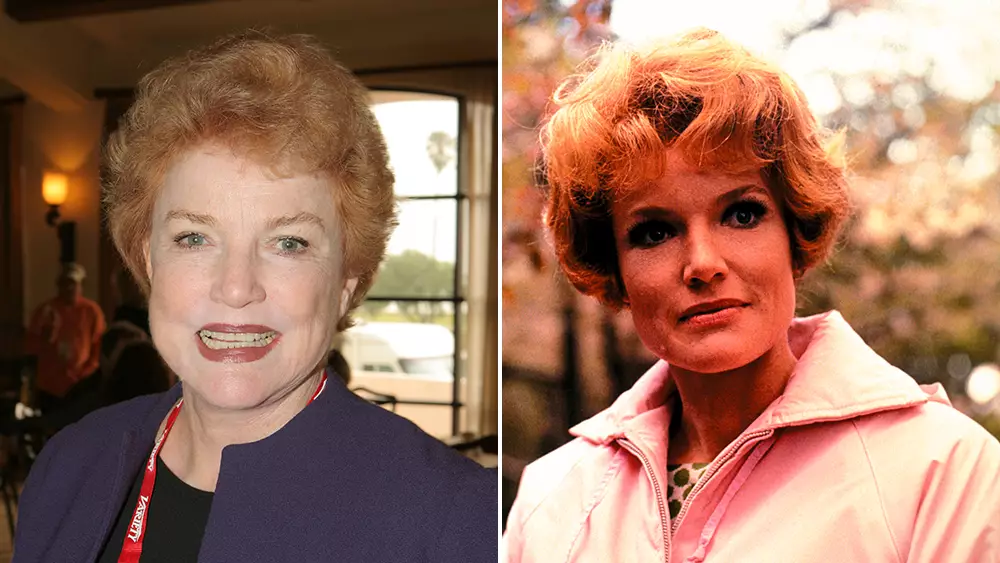Pippa Scott, an iconic actress who enriched the film and television landscape, passed away at the age of 90 from congenital heart failure. Her journey began in Los Angeles on November 10, 1934, born into a family immersed in the entertainment industry. With a stage actress mother and an Oscar-nominated father, it was only natural for her to carve out a path in acting. Unlike many of her contemporaries who may have followed a cookie-cutter trajectory, Scott pursued a diverse and meaningful career.
Making her Broadway debut in 1956, Scott’s talents were soon recognized by legends like John Ford, leading to her pivotal role in the classic film *The Searchers*. It is this role that not only marked the start of her cinematic journey but also showcased her ability to rise to the challenge of portraying complex characters. Unlike many actors of her time, she didn’t shy away from the darker narratives that cinema often features; rather, she embraced them, giving depth to every role she undertook.
Beyond the Silver Screen: A Commitment to Social Justice
While her filmography is impressive, spanning projects that include notable works such as *Auntie Mame* and television staples like *The Twilight Zone*, Scott’s legacy transcends the realm of entertainment. In the ’90s, she pivoted from acting to activism, founding the International Monitor Institute. Her relentless work in human rights laid bare her commitment to issues often ignored by mainstream media. By gathering evidence of war crimes during the Bosnian and Rwandan genocides, Scott positioned herself as more than just a performer; she became a voice for the voiceless. This duality—an accomplished actress who turned to humanitarianism—speaks volumes about her character.
The Complex Portrait of an Artist and Activist
In a world where Hollywood stardom often overshadows meaningful contributions, Scott remained an enigma—a performer deeply committed to her craft, yet equally passionate about social justice. Critics often romanticize actors of old, placing them upon pedestals without acknowledging their human complexities. However, Pippa Scott embodies a more intimate relationship between art and activism. Instead of merely existing in the echo chambers of fame, she shunned that superficiality, choosing instead to engage with the pressing issues of her time.
The legacy she leaves behind is both rich and multidimensional. While many would have been content with a lasting mark in Hollywood, Scott chose to wield her influence for broader societal impact. The partnership she forged with notable figures, such as her former husband Lee Rich of Lorimar Productions, further exemplified how her film career fueled her humanitarian pursuits.
In remembering Pippa Scott, we don’t just celebrate an actress; we honor a rigorous thinker, a passionate advocate, and a compelling storyteller whose life challenges us to rethink the frameworks through which we understand celebrity and legacy. Her passing serves as a reminder that the intersection of art and advocacy is a powerful space that many would do well to inhabit.



Leave a Reply